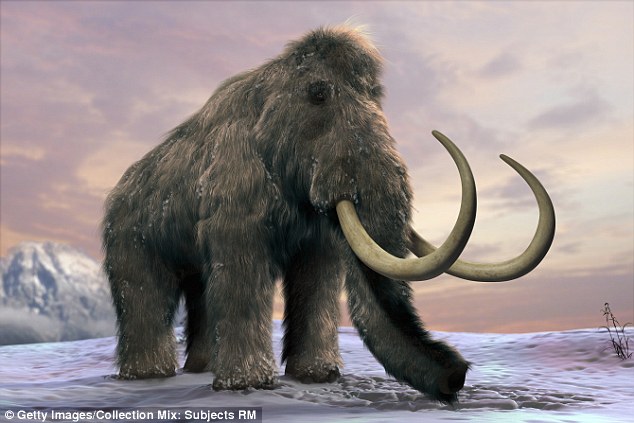Tiny fossils at the bottom of the ocean may hold the clues to Earth’s mysterious ‘100,000 year problem.’
The history of our planet is marked by periodic plunges in and out of ice ages every 100,000 years, starting about a million years ago in what’s known as the Mid-Pleistocene Transition.
Before this, the phenomenon occurred more frequently, blanketing the Northern Hemisphere in vast ice sheets every 40,000 years.
Now, an analysis has revealed evidence of an abundance of CO2 stored deep in the ocean during the 100,000 year intervals, suggesting extra carbon dioxide was sequestered during these periods, lowering the temperature on Earth.
Researchers now say the oceans could be to blame for 100,000 year ice age intervals.
These events leave North America, Europe, and Asia engulfed in ice, and the last one ended roughly 11,000 years ago.
During these periods, the oceans may be ‘inhaling’ larger amounts of CO2, sucking it out of the atmosphere and deep into the sea.
‘We can think of the oceans as inhaling and exhaling carbon dioxide, so when the ice sheets are larger, the oceans have inhaled carbon dioxide from the atmosphere, making the planet colder,’ says lead author Professor Carrie Lear,
‘When the ice sheets are small, the oceans have exhaled carbon dioxide, so there is more in the atmosphere which makes the planet warmer.
‘By looking at the fossils of tiny creatures on the ocean floor, we showed that when ice sheets were advancing and retreating every 100,000 years, the oceans were inhaling more carbon dioxide in the cold periods, suggesting that there was less left in the atmosphere.’
Marine algae play a big role in removing CO2 from the atmosphere, the researchers explain.
While CO2 can be released back into the atmosphere through upwelling, when deep ocean water rises to the surface, the abundance of sea ice can act as a barrier to the ‘exhaling’ process, trapping CO2 in and allowing the ice sheets to continue to grow.
This effect prolongs the ice age.
’If we think of the oceans inhaling and exhaling carbon dioxide, the presence of vast amounts of ice is like a giant gobstopper,’ Lear said.
‘It’s like a lid on the surface of the ocean.’
Today, the Earth is in a ‘warm spell,’ with temperatures and sea levels both on the rise since the end of the last ice age.
This has caused the ice caps to retreat back to the poles – and, human caused carbon emissions have accelerated the warming effect.
Source: Daily mail
N.H.Kh

